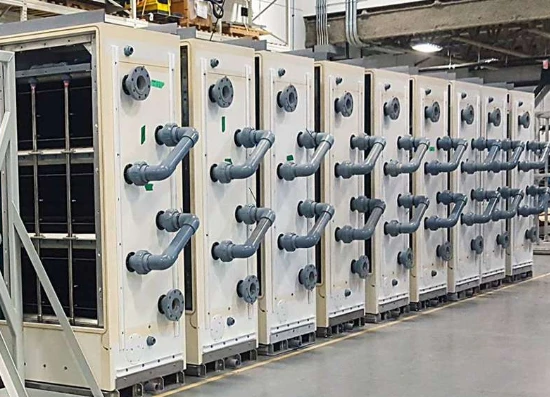
-
 Afrikaans
Afrikaans -
 Albanian
Albanian -
 Amharic
Amharic -
 Arabic
Arabic -
 Armenian
Armenian -
 Azerbaijani
Azerbaijani -
 Basque
Basque -
 Belarusian
Belarusian -
 Bengali
Bengali -
 Bosnian
Bosnian -
 Bulgarian
Bulgarian -
 Catalan
Catalan -
 Cebuano
Cebuano -
 China
China -
 China (Taiwan)
China (Taiwan) -
 Corsican
Corsican -
 Croatian
Croatian -
 Czech
Czech -
 Danish
Danish -
 Dutch
Dutch -
 English
English -
 Esperanto
Esperanto -
 Estonian
Estonian -
 Finnish
Finnish -
 French
French -
 Frisian
Frisian -
 Galician
Galician -
 Georgian
Georgian -
 German
German -
 Greek
Greek -
 Gujarati
Gujarati -
 Haitian Creole
Haitian Creole -
 hausa
hausa -
 hawaiian
hawaiian -
 Hebrew
Hebrew -
 Hindi
Hindi -
 Miao
Miao -
 Hungarian
Hungarian -
 Icelandic
Icelandic -
 igbo
igbo -
 Indonesian
Indonesian -
 irish
irish -
 Italian
Italian -
 Japanese
Japanese -
 Javanese
Javanese -
 Kannada
Kannada -
 kazakh
kazakh -
 Khmer
Khmer -
 Rwandese
Rwandese -
 Korean
Korean -
 Kurdish
Kurdish -
 Kyrgyz
Kyrgyz -
 Lao
Lao -
 Latin
Latin -
 Latvian
Latvian -
 Lithuanian
Lithuanian -
 Luxembourgish
Luxembourgish -
 Macedonian
Macedonian -
 Malgashi
Malgashi -
 Malay
Malay -
 Malayalam
Malayalam -
 Maltese
Maltese -
 Maori
Maori -
 Marathi
Marathi -
 Mongolian
Mongolian -
 Myanmar
Myanmar -
 Nepali
Nepali -
 Norwegian
Norwegian -
 Norwegian
Norwegian -
 Occitan
Occitan -
 Pashto
Pashto -
 Persian
Persian -
 Polish
Polish -
 Portuguese
Portuguese -
 Punjabi
Punjabi -
 Romanian
Romanian -
 Russian
Russian -
 Samoan
Samoan -
 Scottish Gaelic
Scottish Gaelic -
 Serbian
Serbian -
 Sesotho
Sesotho -
 Shona
Shona -
 Sindhi
Sindhi -
 Sinhala
Sinhala -
 Slovak
Slovak -
 Slovenian
Slovenian -
 Somali
Somali -
 Spanish
Spanish -
 Sundanese
Sundanese -
 Swahili
Swahili -
 Swedish
Swedish -
 Tagalog
Tagalog -
 Tajik
Tajik -
 Tamil
Tamil -
 Tatar
Tatar -
 Telugu
Telugu -
 Thai
Thai -
 Turkish
Turkish -
 Turkmen
Turkmen -
 Ukrainian
Ukrainian -
 Urdu
Urdu -
 Uighur
Uighur -
 Uzbek
Uzbek -
 Vietnamese
Vietnamese -
 Welsh
Welsh -
 Bantu
Bantu -
 Yiddish
Yiddish -
 Yoruba
Yoruba -
 Zulu
Zulu
Tailored FRP Solutions for Your Unique Product Needs
Understanding FRP Customized Products Innovation and Versatility
Fiberglass Reinforced Plastic (FRP) is a composite material that has gained considerable traction across various industries due to its unique properties and versatility. As businesses continuously seek to optimize performance, reduce weight, and improve aesthetics, customized FRP products have emerged as a pivotal solution. This article explores the significance of FRP customized products, their applications, benefits, and the future of this innovative material.
The Basics of FRP
FRP is created by combining a polymer matrix with fiberglass reinforcement to produce a material that is both strong and lightweight. The inherent properties of FRP include corrosion resistance, high tensile strength, and flexibility in design. This makes it an ideal choice for a wide range of applications, from industrial components to consumer products.
Customization in the FRP Sector
The customization of FRP products aligns with the growing trend of personalized solutions across various markets. Businesses increasingly understand that one-size-fits-all approaches do not cater to the nuanced needs of specific projects or products. Therefore, the customization of FRP allows for the design and production of bespoke components tailored to unique specifications.
Customization can involve various factors, including dimensions, colors, finishing techniques, and additional features. With advancements in technology and manufacturing processes, such as injection molding, vacuum forming, and hand layup methods, manufacturers can produce FRP items that are not only functional but also aesthetically pleasing.
Applications of Customized FRP Products
FRP customized products find traction in numerous sectors, including
1. Aerospace The aviation industry benefits from FRP’s lightweight and strong nature, leading to enhanced fuel efficiency. Customized components are crucial in maintaining safety and optimizing performance.
2. Automotive The automobile sector employs FRP for parts such as body panels, interior components, and structural elements. Customization allows manufacturers to create parts that blend seamlessly with both design and functional requirements.
3. Construction In construction, FRP is used in reinforcing structures where traditional materials may fail. Custom FRP products can be designed for specific load-bearing capacities or aesthetic requirements.
4. Marine The marine industry uses FRP for boat hulls, decks, and other components due to its resistance to water and corrosive environments. Customized designs ensure better integration and performance in watercraft.
frp customized product

Benefits of FRP Customization
The decision to utilize customized FRP products comes with several benefits
- Enhanced Performance Tailoring FRP products ensures that they meet specific mechanical and physical performance criteria unique to each application.
- Cost-Effective While initial customization might appear costly, the long-term savings achieved through durability, reduced maintenance, and improved efficiencies can be significant.
- Aesthetics Customization allows businesses to stand out in a competitive market by creating unique designs, colors, and finishes that cater to consumer preferences.
- Sustainability FRP materials are relatively lightweight, leading to reduced transportation costs and carbon footprints. Customization can also leverage eco-friendly resins and materials, contributing to sustainability efforts.
The Future of FRP Customized Products
As industries evolve, the demand for customized FRP products is anticipated to grow. Innovations in production technology, such as 3D printing and advanced resin systems, are expected to streamline customization processes and lead to the creation of even more complex and efficient structures.
Additionally, as sustainability concerns continue to rise, manufacturers are increasingly focused on using recyclable and eco-friendly materials in FRP production. This aligns with global efforts to minimize environmental impact and deliver products that meet both performance and ethical standards.
Conclusion
FRP customized products present a compelling intersection of innovation, performance, and aesthetic appeal. By harnessing the unique attributes of fiberglass reinforced plastics, businesses can create tailored solutions that address specific needs across various industries. As technology progresses and the importance of customization increases, the relevance and application of FRP products are poised for significant growth, ensuring they remain at the forefront of modern manufacturing and design practices.









